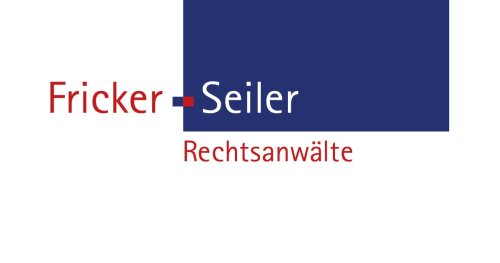Best Collaborative Law Lawyers in Wohlen
Share your needs with us, get contacted by law firms.
Free. Takes 2 min.
Free Guide to Hiring a Family Lawyer
List of the best lawyers in Wohlen, Switzerland
About Collaborative Law Law in Wohlen, Switzerland:
Collaborative Law is a voluntary, private process in which parties and their specially trained lawyers agree to resolve disputes through cooperative negotiation instead of litigation. The parties sign a participation agreement that commits everyone to negotiate in good faith and to withdraw the collaborative lawyers if the matter goes to court - this encourages settlement without threats of later court tactics. In Wohlen, which is in the Canton of Aargau, Collaborative Law is used most often in family and separation matters but can also address inheritance, business-partner disputes, and other civil issues. Collaborative processes are guided by general Swiss civil and procedural law, professional rules for lawyers, and the practice standards of collaborative practitioners rather than by a specific national statute.
Why You May Need a Lawyer:
Collaborative Law lawyers provide legal advice, draft participation agreements, manage the negotiation process, and protect your legal rights while pursuing a non-adversarial resolution. Common situations that lead people in Wohlen to seek a collaborative lawyer include:
- Divorce or legal separation - division of assets, property regime, pension splitting, and maintenance.
- Childcare and parenting arrangements - custody, residence, visitation, and parental authority issues.
- Estate and inheritance disputes - reaching agreements about distribution without court intervention.
- Business or partnership breakups - negotiating buyouts or settlement terms while preserving business continuity.
- Cross-border family issues - where one or both partners have ties to other countries and coordinated legal planning is needed.
You may choose Collaborative Law to reduce cost and time, protect privacy, keep decision-making in your hands, minimize conflict for children, or preserve future relationships.
Local Laws Overview:
There is no single Swiss statute that governs Collaborative Law. Instead, Collaborative Law in Wohlen operates within the broader framework of Swiss and cantonal law and professional rules. Key legal aspects to keep in mind:
- Swiss Civil Code - family law matters such as marriage, divorce, parental authority, property regimes, and inheritance are regulated by the Swiss Civil Code. Any collaborative agreement must be compatible with mandatory rules protecting minors and public policy.
- Swiss Civil Procedure Code - if parties later seek court recognition or conversion of a settlement, civil procedure rules will apply. Collaborative agreements can be formalized and submitted to the competent cantonal authority for approval when necessary.
- Cantonal competence - family law cases are handled by cantonal courts. In Aargau, the local courts and authorities apply cantonal practice in procedural matters and family services. It is important to work with a practitioner familiar with Aargau procedures and the local court culture.
- Professional rules and confidentiality - lawyers in Switzerland must follow professional conduct rules which include duties of confidentiality and competence. Collaborative lawyers typically follow additional practice protocols or training standards set by collaborative networks and associations.
- Pension and social-security implications - splitting occupational pensions and understanding social-security consequences requires attention to Swiss pension law and administrative requirements.
- Children - Swiss law prioritizes the best interest of the child. Any parenting plan will be assessed against that standard and, where required, authorities may be involved to ensure child protection.
Frequently Asked Questions:
What exactly is included in a collaborative participation agreement?
The participation agreement sets out the commitments of the parties and their collaborative lawyers - to negotiate in good faith, to disclose relevant information, to use only collaboratively trained counsel, and to withdraw the collaborative lawyers if litigation is initiated. It also addresses fees, confidentiality, meeting procedures, and the role of any neutral experts.
How is Collaborative Law different from mediation?
Both processes aim to avoid court. Mediation is typically led by a neutral mediator who facilitates discussion between the parties. In Collaborative Law each party is represented by their own collaborative lawyer who advises them and negotiates on their behalf in a cooperative setting. Collaborative Law often involves a team approach - lawyers plus neutral experts - while mediation focuses on the mediator as the main process leader.
Is a collaborative agreement legally binding in Switzerland?
A collaborative agreement is a private contract. Many elements of a settlement can be made legally binding by signing notarial deeds or by submitting agreements to the competent court for approval where required - for example, divorce settlements that must be reflected in divorce decrees. The enforceability of specific terms depends on Swiss contract and family law rules.
Will the collaborative process protect my privacy?
Yes. The collaborative process is private and confidential. Unlike court proceedings, which are public in some respects, collaborative negotiations are conducted in private. However, confidentiality has limits - for example, information revealing harm to a child or criminal activity may still trigger mandatory reporting to authorities under Swiss law.
How much does Collaborative Law cost in Wohlen?
Costs vary depending on the complexity of the case, the hourly rates of the lawyers, and whether neutral experts are engaged. Collaborative Law can be less expensive than contested court litigation because it tends to be faster, but it is not automatically cheaper. Request a cost estimate and fee agreement at your first meeting and ask about options for cost control.
Can Collaborative Law work if one person is much more powerful financially or emotionally?
Power imbalances can affect any negotiation. Collaborative lawyers are trained to manage inequities by ensuring fair information exchange, advising each client on rights and options, and, where appropriate, suggesting neutral experts or coaches. However, if one party cannot meaningfully negotiate due to coercion or abuse, collaborative processes may not be appropriate and protective legal measures may be necessary.
What happens if negotiations break down?
If the collaborative process breaks down, the participation agreement usually requires the collaborative lawyers to withdraw from representing the parties in subsequent court proceedings. Parties can then retain new counsel for litigation. This withdrawal clause is fundamental to the collaborative model and encourages participants to settle cooperatively.
How long does a collaborative case typically take?
There is no fixed timeline. Simple matters may be resolved in a few sessions over a few months. More complex family or financial disputes involving expert valuation or pension splitting may take longer. The parties set the pace, and progress often depends on disclosure, scheduling, and the willingness to negotiate.
Can Collaborative Law address international or cross-border issues?
Yes, collaborative processes can accommodate cross-border complications, but these cases require lawyers familiar with relevant foreign laws, jurisdictional issues, and international conventions. Make sure your collaborative counsel has experience with cross-border family law or can coordinate with qualified foreign specialists.
How do I find a Collaborative Law lawyer in Wohlen?
Look for lawyers in Aargau or Wohlen who advertise collaborative training or membership in collaborative practice groups. Inquire about specific Collaborative Law training, recent collaborative cases, language skills, fee structures, and whether they work with neutral experts. You can also contact local family counseling services or the cantonal bar association for practitioner referrals.
Additional Resources:
Below are organizations and bodies that can provide information, referrals, or support. Contact the appropriate body for descriptions of local services, practitioner listings, and official procedures.
- Canton of Aargau - cantonal court and family services - for procedural and local court information.
- Swiss Bar Association - professional standards and lawyer directories.
- International Academy of Collaborative Professionals - standards and training for collaborative practitioners.
- Local family counseling services in Canton Aargau - support for parenting plans and child-focused advice.
- Cantonal pension and social-security authorities - for information about pension splitting and social-security consequences.
- Mediation and Alternative Dispute Resolution centres in Canton Aargau - alternative dispute-resolution services and referrals.
- Local notaries and registry offices - for formalizing agreements and property transactions.
Next Steps:
If you are considering Collaborative Law in Wohlen, follow these practical steps:
- Arrange an initial consultation with a collaboratively trained lawyer - use this meeting to discuss goals, process, likely timeline, and estimated costs.
- Prepare and bring key documents - marriage contract or property-regime documents, bank statements, tax returns, pension documents, and any agreements affecting children.
- Ask the lawyer for a sample participation agreement and clarify confidentiality rules and the withdrawal clause.
- Confirm the lawyer's collaborative training and experience, language abilities, and familiarity with Aargau practice.
- Discuss whether neutral experts are likely to be needed - for valuations, pensions, child specialists, or financial analysis - and how their fees will be handled.
- Consider preparing a child-centered parenting proposal if children are involved, focusing on stability and daily routines.
- Sign the participation agreement once you are comfortable with the terms, commit to full disclosure, and set dates for initial collaborative meetings.
- Monitor costs and progress - ask for regular summaries and budget updates, and keep communication open with your lawyer about settlement priorities and fallback positions.
If at any stage you feel unsafe or believe the process is no longer appropriate, inform your lawyer immediately and consider alternative protective or legal measures.
Lawzana helps you find the best lawyers and law firms in Wohlen through a curated and pre-screened list of qualified legal professionals. Our platform offers rankings and detailed profiles of attorneys and law firms, allowing you to compare based on practice areas, including Collaborative Law, experience, and client feedback.
Each profile includes a description of the firm's areas of practice, client reviews, team members and partners, year of establishment, spoken languages, office locations, contact information, social media presence, and any published articles or resources. Most firms on our platform speak English and are experienced in both local and international legal matters.
Get a quote from top-rated law firms in Wohlen, Switzerland — quickly, securely, and without unnecessary hassle.
Disclaimer:
The information provided on this page is for general informational purposes only and does not constitute legal advice. While we strive to ensure the accuracy and relevance of the content, legal information may change over time, and interpretations of the law can vary. You should always consult with a qualified legal professional for advice specific to your situation.
We disclaim all liability for actions taken or not taken based on the content of this page. If you believe any information is incorrect or outdated, please contact us, and we will review and update it where appropriate.









